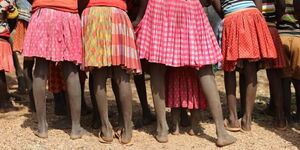Kenyans have been put on high alert after a cholera outbreak that has so far resulted in 69 cases, as reported by the Ministry of Health.
The Ministry revealed on Friday that the outbreak is particularly rampant in Nairobi, Migori, and Kisumu counties and has led to five deaths, including that of a 46-year-old man in Nairobi.
Migori is the hardest-hit county, reporting 43 cases. Out of these, 27 are male and 16 are female. Health officials in the county also confirmed that the outbreak has claimed one life. The contamination of River Migori has been attributed as the main cause of the outbreak.
Further, Kuria East (with 21 cases) and Kuria West (16 cases) were the most affected regions in Migori. The most affected villages in the county are Sakuri B in Kuria East and Namba in Kuria West.
In Kisumu, three lives have already been lost to cholera. The county has so far recorded 15 cases, with a majority being women, at nine. Men make up the remaining six cases.
Official sources highlighted Kogoro and Kaluga villages in Nyando as some of the hotspots for cholera. Ombeyi village in Muhoroni has also been identified. Ministry officials stated that unsafe water in these areas is fueling the spread of the disease.
In the capital, 11 cases have been reported so far, with one life already lost. Kasarani area leads with five cases, followed by Kibra with three, and Dagoretti with two cases. Embakasi Central has one case.
To curb the spread of cholera in Nairobi, the county’s Chief Public Health Officer, Muchira Nyakaba, called on hospitals to activate rapid response teams and implement cholera control measures.
Hospitals have been urged to promptly report any suspected cases to ensure efficient identification and management of new cases, as well as to control further spread.
They were also instructed to submit daily reports on new cases and cholera response activities to the Emergency Operations Center (EOC) by 9:00 a.m. every day.
Nairobi residents were also urged to step up hygiene practices and protocols to prevent more infections of the deadly disease.
“To the entire Nairobi populace and the general public, please be cautious of what you put in your mouth because it (cholera) gets in through your mouth. Be cautious of what you eat and what you drink,” noted a public health specialist.












